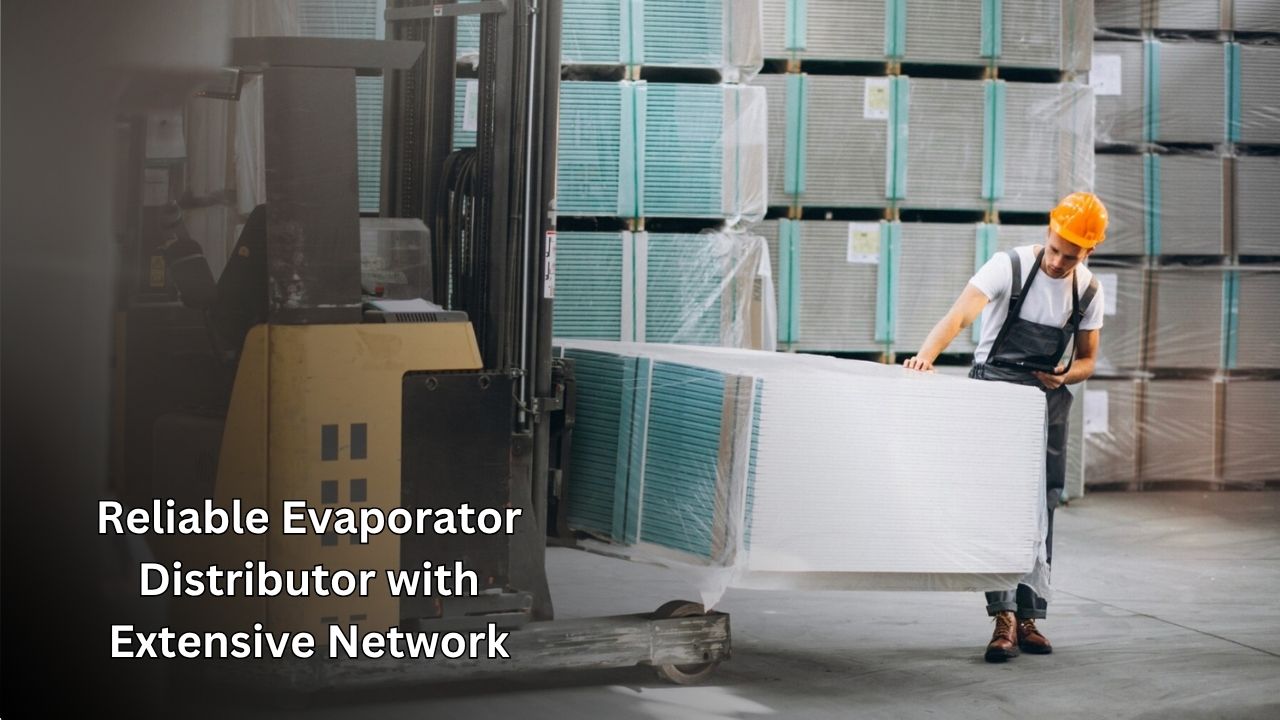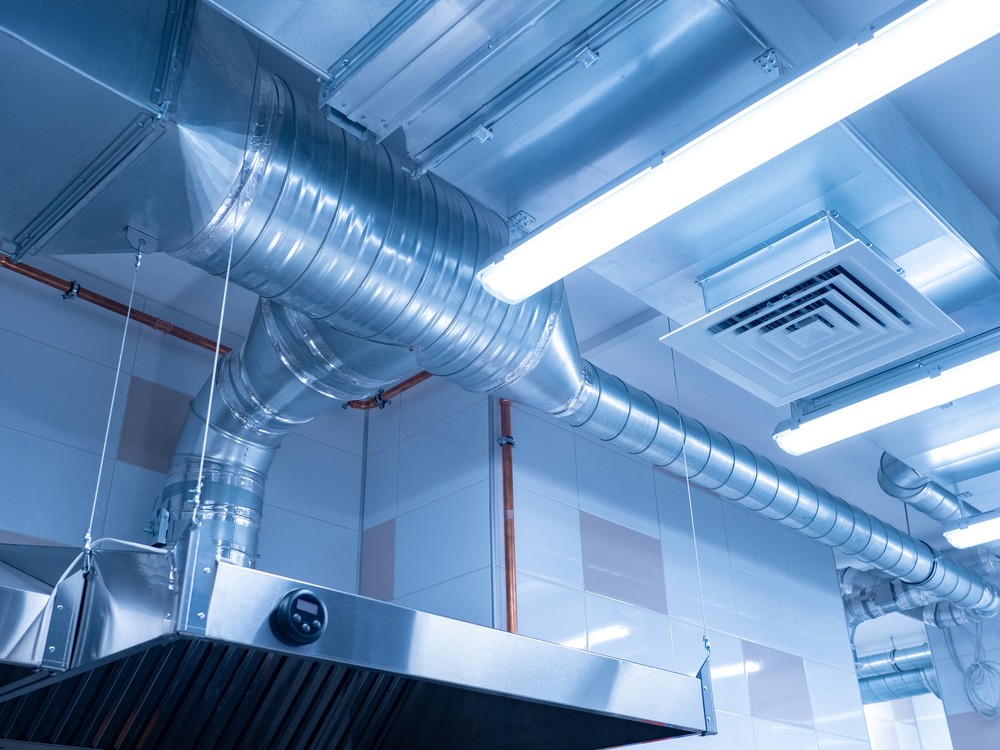Evaporator Distributor
Evaporator Distributor: The Bridge to Cooling and Industrial Solutions
An evaporator distributor is responsible for the supply, logistics, and distribution of evaporators, which are essential components in cooling systems and industrial processes. These distributors play a pivotal role in industries such as food and beverage, chemical, pharmaceutical, energy, and HVAC, providing high-quality products, timely delivery, and technical support to enhance business efficiency. An evaporator distributor serves as a bridge between manufacturers and end-users, ensuring the delivery of optimal cooling systems solutions. In this article, we will explore evaporator distribution processes, product varieties, technological innovations, key considerations for selecting a distributor, and sectoral applications in detail. Our aim is to provide comprehensive insights into evaporator distribution to help your business make informed supply chain decisions.

What Does an Evaporator Distributor Do?
An evaporator distributor facilitates the delivery of evaporators from manufacturers to customers. This role extends beyond mere product supply, encompassing technical consultation, inventory management, and after-sales services. Evaporators are critical devices used in refrigeration cycles or liquid concentration processes. Distributors select and stock the appropriate evaporator models based on customer needs and ensure timely delivery. For example, they may supply fan-driven evaporators for a food storage facility or corrosion-resistant tubular evaporators for a chemical plant. An evaporator distributor enables manufacturers’ products to reach broader markets, providing businesses with reliable and efficient solutions. Distributors typically collaborate with manufacturers adhering to international standards such as ISO 9001, CE, and ASHRAE.
Evaporator Distribution Processes
Evaporator distributor companies follow a structured process to ensure seamless product delivery to customers. This process includes the following key stages:
- Sourcing and Partnerships: Distributors establish agreements with reputable manufacturers to build their product portfolios. For instance, they may partner with leading brands like Alfa Laval or Güntner.
- Inventory Management: Evaporator models suited to various industries are stocked. Large storage capacities ensure rapid delivery.
- Customer Consultation: Distributors provide technical support to help customers select the right evaporator, offering advice on energy efficiency or material compatibility.
- Logistics and Delivery: Products are securely packaged and delivered on time. International shipping involves meticulous customs management.
- Quality Control: Distributors verify that products from manufacturers meet quality standards.
- After-Sales Services: Installation guidance, maintenance advice, and technical support enhance customer satisfaction.
- Market Analysis: Distributors track industry trends to keep their inventory and services up to date.
These processes enable evaporator distributor companies to maintain a reliable supply chain. For example, companies like Frigo Block stand out with their extensive distribution networks.
Types of Distributed Evaporators
An evaporator distributor supplies a variety of evaporator types tailored to different industry needs. Below are the most common evaporator types and their distribution characteristics:
- Plate Evaporators: Used in food, pharmaceutical, and HVAC systems, valued for their compact design and high efficiency.
- Flash Evaporators: Ideal for liquid concentration in the food industry. Distributors prioritize models with high pressure resistance.
- Falling Film Evaporators: Designed for high-volume liquid concentration, commonly distributed for chemical processes.
- Fan-Driven Evaporators: Widely used in commercial refrigeration systems. Distributors focus on fan performance and energy efficiency.
- Tubular Evaporators: Preferred in petrochemical and energy sectors. Distributors select models with high thermal conductivity.
- Multi-Effect Evaporators: Known for energy-saving designs. Environmental sustainability is a key factor in distribution.
- Dry Expansion Evaporators: Suitable for systems requiring precise temperature control. Distributors emphasize models with sensor integration.
This variety allows evaporator distributor companies to cater to diverse industries. Distributors focus on material quality and system performance when selecting products.
Key Considerations When Choosing an Evaporator Distributor
Selecting the right evaporator distributor is critical for your business’s operational success. A poor choice can lead to supply chain disruptions, substandard products, or increased costs. Here are the key criteria to consider when choosing a distributor:
- Reliability and Experience: The distributor’s industry experience and manufacturer references indicate trustworthiness. Distributors with over 30 years of experience are often preferred.
- Product Range: A broad evaporator portfolio ensures solutions for various needs.
- Fast Delivery: Strong inventory and logistics networks guarantee timely product delivery.
- Technical Support: Distributors should offer consultation for product selection and installation processes.
- Competitive Pricing: Distributors providing high-quality products at reasonable prices are advantageous for budget-conscious projects.
- After-Sales Services: Maintenance and technical support are vital for long-term customer satisfaction.
- Environmental Responsibility: Distributors offering low-GWP refrigerants and sustainable products support environmental goals.
These criteria ensure your business partners with the most suitable evaporator distributor.
Technological Innovations in Evaporator Distribution
Evaporator distributor companies add value to customers through technological innovations. Here are the latest trends in evaporator distribution:
- Digital Inventory Management: IoT and AI-based systems optimize inventory tracking and demand forecasting.
- Eco-Friendly Products: Evaporators using low-GWP refrigerants (R1234yf, CO2) enhance compliance with environmental regulations.
- Fast Logistics Solutions: Automated warehousing and tracking systems reduce delivery times.
- Customized Solutions: Distributors offer evaporator models tailored to specific customer needs.
- Training and Consultation: Distributors provide training on energy efficiency and system optimization.
- Recycling Programs: Recycling old evaporators supports sustainability goals.
- Data Analytics: Analyzing customer demand helps refine inventory and distribution strategies.
These innovations enhance the competitive edge of evaporator distributor companies. For example, distributors with international logistics networks offer rapid delivery advantages.
Sectoral Applications of Evaporators
Cooling systems are widely used across various industries, with evaporators forming their core. Below are the primary application areas for evaporators:
- Food and Beverage: Used for concentrating dairy products, fruit juices, and syrups.
- Chemical: Critical for the separation and concentration of chemical substances.
- Pharmaceutical: Used in drug production requiring precise temperature control.
- Energy: Essential for waste heat recovery and geothermal energy production.
- Wastewater Treatment: Multi-effect evaporators are used for wastewater concentration.
- HVAC Systems: Fan-driven evaporators are common in air conditioning and refrigeration units.
- Marine: Evaporators prevent spoilage in cold chain transportation.
This wide range of applications requires evaporator distributor companies to provide industry-specific solutions.
Quality and Reliability in Evaporator Distribution
An evaporator distributor must ensure that its products meet quality standards. Evaporators compliant with ISO 9001, CE, and ASHRAE standards guarantee reliability. Distributors perform quality checks on products sourced from manufacturers to deliver high-performance solutions. For example, evaporators distributed for the food industry must comply with hygiene standards like FDA and HACCP.




